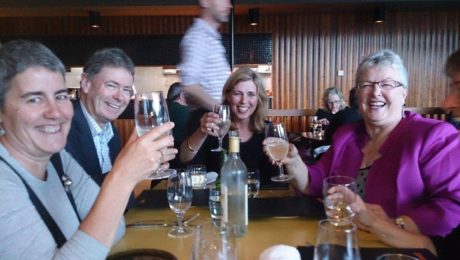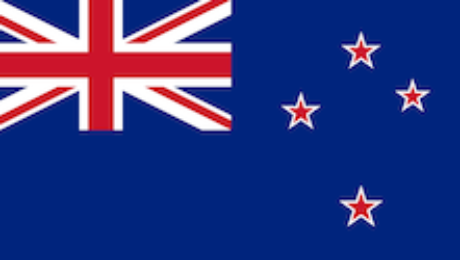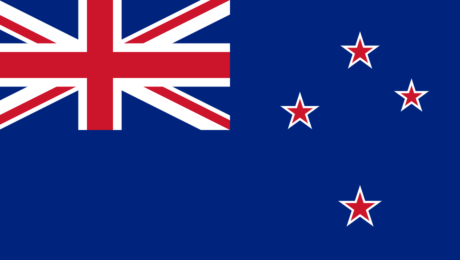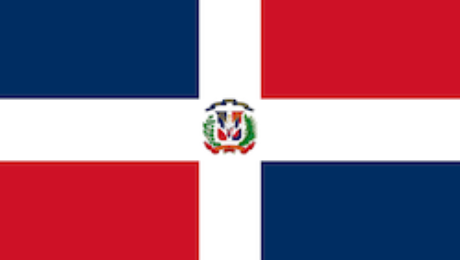A Star Gone: The Passing of Judge Peggy Hora
Sunday, 29 November 2020
The world of therapeutic jurisprudence (TJ) has lost a giant. Judge Peggy Hora, a retired California Supreme Court Judge, died on October 31st after a short illness.
- Published in Australia
No Comments
Wellbeing survey of Australia’s judiciary reveals risk of distress and burnout
Monday, 06 May 2019
An Australian-first survey of the wellbeing of judges and magistrates has revealed a judiciary at risk of burnout or trauma from having to constantly deal with high workloads and the harrowing details of serious crimes.
- Published in Australia
Mental health courts: Providing access to justice for people with mental illness and cognitive impairments
Monday, 06 May 2019
The number of people with mental illness in Australian prisons is growing. Almost half of prison entrants (49 per cent) in 2015 reported being told at some point by a health professional that they have a mental disorder, an 11 per cent increase since 2012. People with cognitive impairments are also over-represented in Australian prisons.
- Published in Australia
Inside the Alcohol and Other Drug Treatment Court: Helping addicts help themselves
Sunday, 17 February 2019
The Alcohol and Other Drug Treatment Court supports users who want to break their habit. It’s a successful system, so why might it be shut down, asks Paul Little. Mr J was found asleep at the wheel after crashing into a tree with a half-drunk bottle of whisky in his lap. He is appearing before
- Published in New Zealand
Problem solving courts: Some lessons from New Zealand
Thursday, 31 January 2019
On 24 and 25 January I attended the Future Directions of the Adult Alcohol and Other Drug Treatment Courts Conference at the University of Auckland. After six successful years running as a pilot in two locations, the AODTC is at a crucial crossroad – in the coming months the New Zealand government will decide whether to make
- Published in New Zealand
‘Today I make better choices’: How NZ’s Drug Court changed a man’s life
Wednesday, 30 January 2019
'Today I make better choices': How NZ's Drug Court changed a man's life. But that all changed when he was given an opportunity three years ago to have his sentence transferred to the Alcohol and Other Drug Treatment Court.
- Published in New Zealand
Alcohol and Other Drug Treatment Courts transforming lives
Friday, 30 November 2018
Society tends to offer little sympathy to drug addicts and alcoholics who commit crime to feed their addiction. After all, many end up on an endless cycle of prison lags only to use drugs inside where they learn new ways of committing crime through hardened career criminals. But what if addiction was treated as a
- Published in Addiction, New Zealand
Training to strengthen Dominican Republic drug court programme begins
Wednesday, 24 October 2018
SANTO DOMINGO, Dominican Republic — Training to strengthen the Dominican Republic drug treatment court programme began on 22 October in Santo Domingo, as part of the Caribbean Forum (CARIFORUM) strategy to tackle the drug problem from the demand side. The two-day capacity building initiative is part of the response under the Drug Demand Reduction (DDR)
- Published in Alcohol and Other Drug Treatment Courts, Dominican Republic
Addiction courts save millions in prison costs
Friday, 12 October 2018
Two alcohol and drug courts have saved $28.7 million in prison costs over a six year pilot. Reporter Teuila Fuatai spent a day in one of the courts, and got an inside view of what could be one answer to NZ’s unsustainable prison system. With more than 10,000 people behind bars and total prison costs
- Published in Alcohol and Other Drug Treatment Courts, New Zealand
‘Not soft on crime’: push for specialist indigenous court
Saturday, 23 June 2018
The state’s barristers and police are pushing the NSW government to urgently fund a specific indigenous court in a bid to lower the “spiralling number” of Aboriginal people in jail. In a significant move, the NSW Bar Association and and the Police Association are jointly calling for a trial of a sentencing court- the Walama Court-
- Published in Australia
Warakurna welcomes first all-Indigenous police station, aiming to repair a community’s mistrust
Tuesday, 19 June 2018
Not far from the Northern Territory border, Warakurna in Western Australia is policed by two sworn Aboriginal officers who also cover two other nearby communities. Since they began working there in late 2017, the officers have been making inroads in gaining the respect of residents. Aboriginal elder, Daisy Ward, said the community had not been
- Published in Australia
Veterans’ Treatment Courts for Your Returning Heroes
Monday, 21 May 2018
War changes people– the families of those who don’t survive it, civilians living in a war zone or the soldiers who were able to return home, some of whom return badly broken. Sadly , some of the changes are internal; some soldiers return home with PTSD (Post Traumatic Stress Disorder). PTSD is a mental health
- Published in Other
Successful Drug Court graduation marked with traditional Aboriginal dance
Sunday, 20 May 2018
Spellbound. The only word which could describe the effect on everyone in the Parramatta Drug Court courtroom this month when a surprise traditional Aboriginal dance broke the hushed tones of the usual proceedings. The successful completion of a proud Aboriginal man’s Drug Court Program was marked with a traditional Aboriginal dance by the community of
- Published in Australia
Specialised drug court?
Monday, 23 April 2018
DRUG abuse is a global problem which has serious socioeconomic and public health impact. Countries differ in tackling the problem, but the United States and Australia offer a model that others may want to emulate. They have what is called drug courts, which are specialised courts used to channel drug users into treatment as opposed
- Published in Other
Children’s court judge renews calls for Youth Koori Court for western NSW
Friday, 16 March 2018
A high-profile judge has reignited calls for a specialised Aboriginal court for regional New South Wales to improve reform for indigenous youth caught up in crime. The 2016 Census data revealed more than half of the region’s Aboriginal and Torres Strait Islander children aged 15-17 appeared in Walgett Children’s Court. The president of the NSW
- Published in Australia







